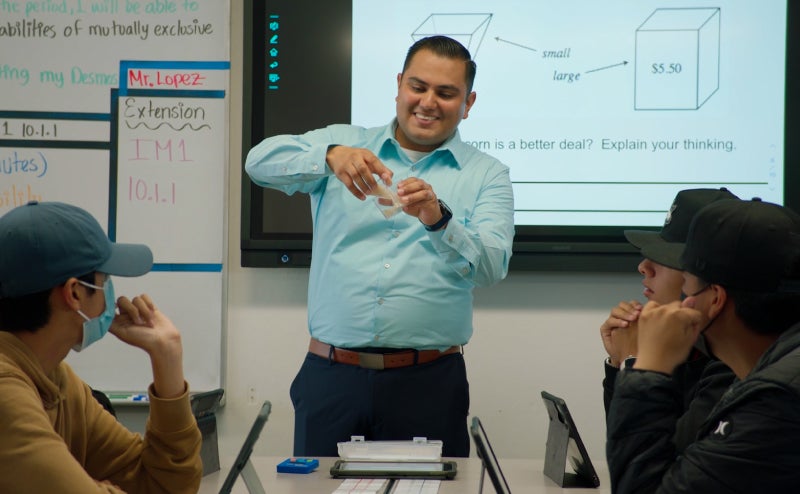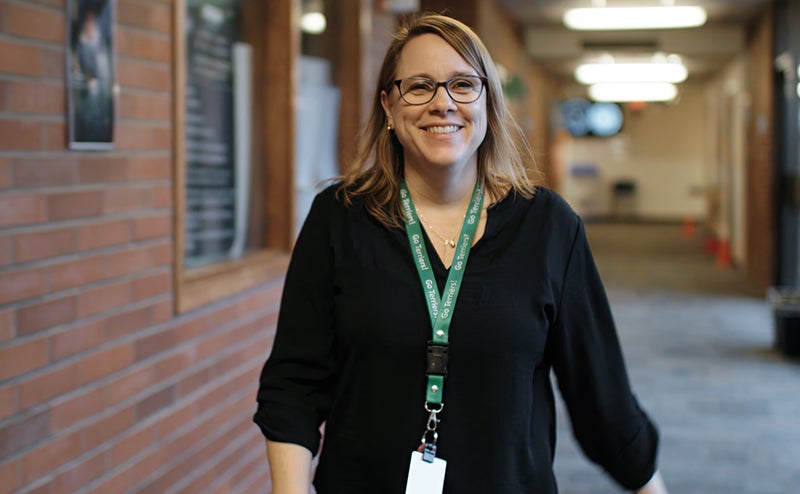In communities around the world, one of the best ways to find a new book is through a Little Free Library.
Chicago was once called the worst school district in the United States. Today, though, high school graduation rates there are rising, as are ACT scores, GPAs, and the number of students enrolled in AP courses. And gains in elementary test scores outpace national averages.
I recently visited Chicago—and a high school that has gone from one of its worst to one of its best—to see what was behind the city’s turnaround.
I heard many theories to explain Chicago’s progress, including teacher training, better accountability, a longer school day, and demographic changes. What impressed me most is how the city’s schools have worked together to use evidence-based research to measure and improve their performance.
Let me share an example of what I’m talking about.
Back in the early 2000s, University of Chicago researchers discovered how critical the first year of high school is in a student’s academic career. A freshman who fails no more than one course and earns at least five credits by the end of the year is four times more likely to graduate than a student who is off-track. If their grades are a B+ or better, they are more likely to succeed in their first year of college. Being “on-track” is more predictive of graduation from high school than race, socioeconomic status, and even test scores.
After this research was released, school leaders in Chicago started closely monitoring whether freshmen were on-track. They created an early warning system that helped them identify students who were at risk by checking grades, attendance, and course completions. They also looked for ways to help struggling students get back on-track. The results were impressive. In 2000, the on-track rate for Chicago high school freshmen was just 56 percent. In 2017, it topped 85 percent. The graduation rate followed this trend, increasing from 51 percent in 2002 to 74 percent in 2015.
But that’s not the end of the story. What made the difference in Chicago—and what other school districts can learn from Chicago—was how the schools acted on the data. School leaders and teachers worked hand in hand with researchers to apply it in ways that would help improve student achievement.
University of Chicago researchers partnered with an organization called the Network for College Success (NCS) to translate their findings and work directly with school leaders and teachers on practical interventions to classroom challenges.
I visited one Chicago high school to see how a partnership like this works.
North-Grand High School serves the city’s Humboldt Park community. Most of its 970 students come from neighborhoods that struggle with violence, hunger, abuse, and other challenges. Most students will be the first people in their families to go to college.
In 2012, North-Grand and NCS began working together to increase the number of freshmen who finish the year on-track. At the time, 76 percent of North-Grand’s freshmen were on-track.
Using data that showed how the transition from middle school to high school can be especially tough—students often grapple with making friends, battling depression, and a new school— North-Grand put new approaches in place to help freshmen find their footing. They identified incoming 9th graders who were most at risk so they could offer them support right away. They designed a freshman seminar that guides students through their transition to high school.
If you’re an at-risk freshman starting at North-Grand, on your first day of school a teacher starts helping you with your organizational skills, college planning, and how to use your school laptop for assignments. Every five weeks, you get a progress report about how you’re doing, and you sit down with a counselor to understand what’s going well, what’s not, where to go for help, and how you are making progress toward graduation. An online portal lets you check your grades daily if you wish.
This intervention—designed in partnership with NCS—is surprisingly simple. But the returns have been tremendous. The students I met at North-Grand during my visit liked the fact that there was no mystery about their standing in their classes. As one senior, Yusef, told me, thanks to this data he is “seeing himself clearly” in ways he couldn’t before.
Just seven years ago, North-Grand High School was ranked among the worst schools in Chicago. Today, it’s among the best. Ninety-five percent of its freshmen are on-track to graduate.
NCS connects a network of 17 high schools in Chicago. Many of them have adopted similar programs and experienced similar progress. I hope more schools around the country can learn from this success. Our foundation is supporting more than 20 networks of schools that are working with organizations like NCS to improve student achievement.
By embracing data, research, and the collective knowledge of their local community, schools have an opportunity to help students succeed in high school, college, and beyond. It’s an approach that empowers schools to identify their most pressing challenges and the tools to design the right solutions.





